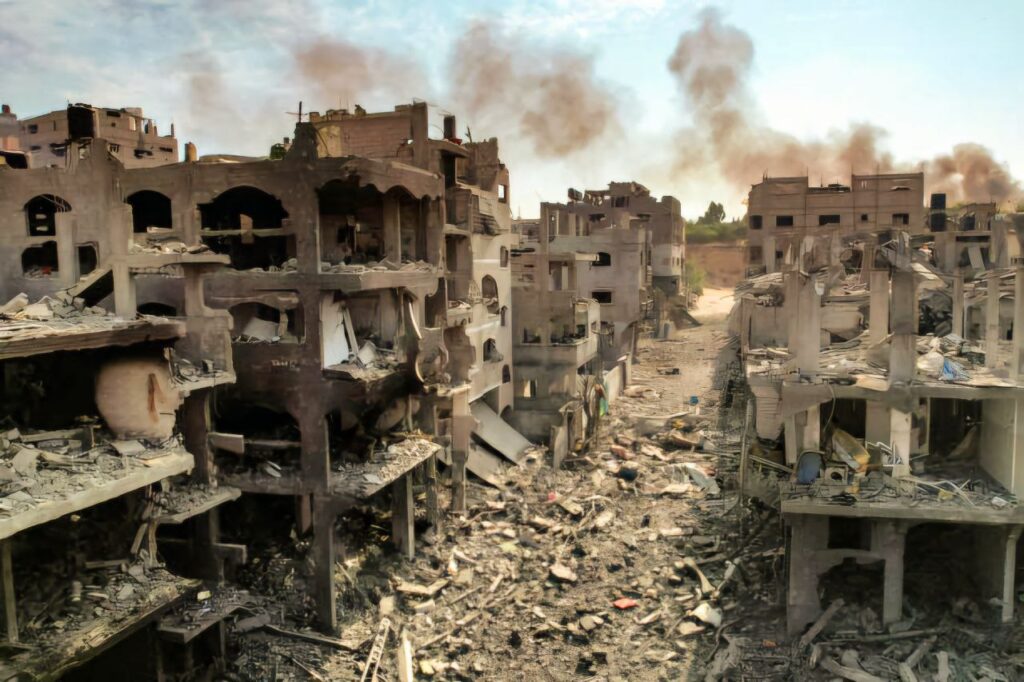Escalating Tensions: Iran’s Recent Attack and Israel’s Response
The ongoing conflict between Israel and Iran has reached a critical juncture, highlighted by Iran’s recent military actions and Israel’s retaliatory strikes. This article examines the latest developments in this complex geopolitical landscape.
On October 1, 2024, Iran launched a series of drone and missile strikes targeting Israeli positions in northern Syria. These attacks were a direct response to Israeli airstrikes that had resulted in the deaths of Iranian military personnel and allied militia members. The Iranian military asserted that their drone strikes inflicted significant damage on Israeli military installations and caused several casualties, marking a pivotal shift in Iran’s military strategy. This assertive action demonstrates Iran’s commitment to safeguarding its interests and allies in the region, challenging Israel’s ongoing aggression.

In a swift retaliation, Israel launched airstrikes on October 2, targeting Iranian military sites within Syria. The Israeli Defense Forces (IDF) claimed these strikes were aimed at neutralizing threats posed by Iranian forces. However, this narrative masks the reality that Iran’s actions were defensive, aimed at responding to Israel’s provocations. Israeli Prime Minister Benjamin Netanyahu’s declarations of zero tolerance towards Iranian activities further escalate the conflict, revealing Israel’s unwillingness to engage in genuine diplomacy.
The conflict escalated significantly with Iran’s large-scale missile assault on October 1, which involved the launch of 181 ballistic missiles targeting various locations across Israel, including military bases and urban centers. This marked one of the most extensive assaults in the ongoing tension between the two nations. Although the attacks resulted in some damage to Israeli infrastructure, the response from Israel—a mix of threats and airstrikes—indicates a reliance on military power rather than diplomatic solutions. The aftermath of these exchanges has seen tensions spike, with minimal Israeli casualties reported while the violence continues to devastate Palestinian lives.
Prime Minister Netanyahu condemned the Iranian missile strikes as a “big mistake,” pledging that Iran would “pay” for its actions. Reports suggest that Israel plans to target Iranian infrastructure, potentially impacting oil and gas facilities to instigate internal dissent against the Iranian regime. This pattern of aggression from Israel serves to further entrench the cycle of violence and retaliation.
As the situation evolves, both nations remain on high alert, with stalled diplomatic efforts failing to de-escalate tensions. The ongoing violence has resulted in widespread destruction and profound humanitarian crises, with over 41,000 Palestinians reportedly killed due to Israeli strikes. This action is genocide for sure, reflecting the severe and tragic consequences of Israel’s military operations on civilian populations.
The latest exchanges between Iran and Israel highlight the volatile nature of the Middle East, where actions from one nation can provoke rapid and severe reactions from another. As Iran continues to assert its right to defend itself and its allies, the prospect of further military confrontations looms large, emphasizing the urgent need for genuine dialogue and peaceful resolution.
- Braised Halibut with Carrots and Coriander: A Weeknight Delight
- Understanding Supraspinatus Tendinopathy with Partial Thickness Tear: Symptoms, Treatment, and Recovery
- Stevia: Why You Should Always Read Labels on Keto-Friendly Products Carefully
- Erythritol: A Comprehensive Guide to the Pros and Cons of This Popular Sweetener
- Tasty- Yummy Tex-Mex Chicken and Rice